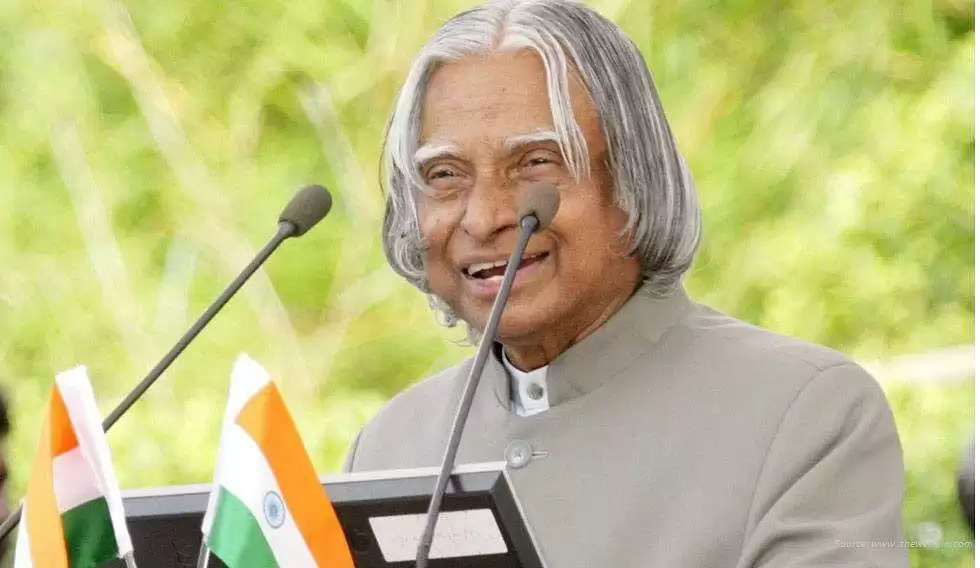Interesting facts to know about Abdul Kalam

NATIONAL | October 15, 2019:
Avul Pakir Jainulabdeen Abdul Kalam, the former President of India, a scientist and widely known as the Missile Man of India.
Here are the facts you need to know about Avul Pakir Jainulabdeen Abdul Kalam:
Early life
Avul Pakir Jainulabdeen Abdul Kalam was born on October 15, 1931 to a Tamil Muslim family in the pilgrimage centre of Rameswaram on Pamban Island, then in the Madras Presidency and now in the State of Tamil Nadu. His father Jainulabdeen was a boat owner and imam of a local mosque, his mother Ashiamma was a housewife. His father owned a ferry that took Hindu pilgrims back and forth between Rameswaram and the now uninhabited Dhanushkodi. Kalam was the youngest of four brothers and one sister in his family.
Career as a scientist
After graduating from the Madras Institute of Technology in 1960, Kalam joined the Aeronautical Development Establishment of the Defence Research and Development Organisation (by Press Information Bureau, Government of India) as a scientist after becoming a member of the Defence Research & Development Service (DRDS). He started his career by designing a small hovercraft, but remained unconvinced by his choice of a job at DRDO. Kalam was also part of the INCOSPAR committee working under Vikram Sarabhai, the renowned space scientist.
Presidency
Kalam served as the 11th President of India, succeeding K. R. Narayanan. He won the 2002 presidential election with an electoral vote of 922,884, surpassing the 107,366 votes won by Lakshmi Sahgal. His term lasted from 25 July 2002 to 25 July 2007. On 10 June 2002, the National Democratic Alliance (NDA) which was in power at the time, expressed that they would nominate Kalam for the post of President, and both the Samajwadi Party and the Nationalist Congress Party backed his candidacy. After the Samajwadi Party announced its support for Kalam, Narayanan chose not to seek a second term in office, leaving the field clear.
ALSO READ:Man chops off wife's tongue; tells cop tongue got stuck during passionate kiss
Post-presidency
After leaving office, Kalam became a visiting professor at the Indian Institute of Management Shillong, the Indian Institute of Management Ahmedabad, and the Indian Institute of Management Indore; an honorary fellow of Indian Institute of Science, Bangalore chancellor of the Indian Institute of Space Science and Technology Thiruvananthapuram; professor of Aerospace Engineering at Anna University; and an adjunct at many other academic and research institutions across India. He taught information technology at the International Institute of Information Technology, Hyderabad, and technology at Banaras Hindu University and Anna University.
Awards and honours
Kalam received 7 honorary doctorates from 40 universities.The Government of India honoured him with the Padma Bhushan in 1981 and the Padma Vibhushan in 1990 for his work with ISRO and DRDO and his role as a scientific advisor to the Government. In 1997, Kalam received India's highest civilian honour, the Bharat Ratna, for his contribution to the scientific research and modernisation of defence technology in India. In 2013, he was the recipient of the Von Braun Award from the National Space Society "to recognize excellence in the management and leadership of a space-related project". In 2012, Kalam was ranked number 2 in Outlook India's poll of the Greatest Indian.
Death
On 27 July 2015, Kalam travelled to Shillong to deliver a lecture on "Creating a Livable Planet Earth" at the Indian Institute of Management Shillong. While climbing a flight of stairs, he experienced some discomfort, but was able to enter the auditorium after a brief rest. At around 6:35 p.m, only five minutes into his lecture, he collapsed.[85][86] He was rushed to the nearby Bethany Hospital in a critical condition; upon arrival, he lacked a pulse or any other signs of life. Despite being placed in the intensive care unit, Kalam was confirmed dead of a sudden cardiac arrest at 7:45 p.m.
Source: Wikipedia

















